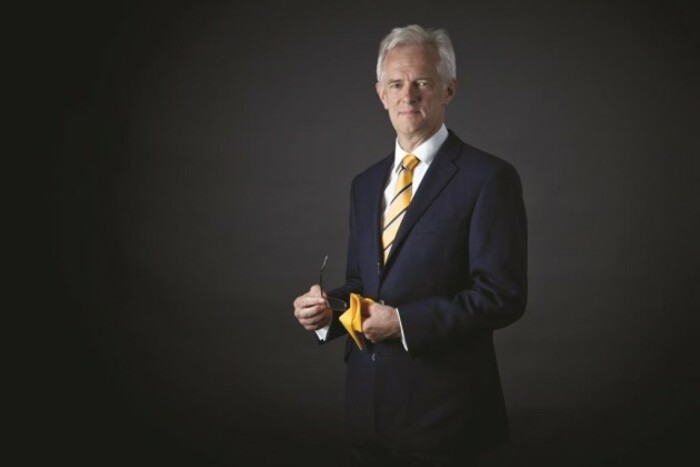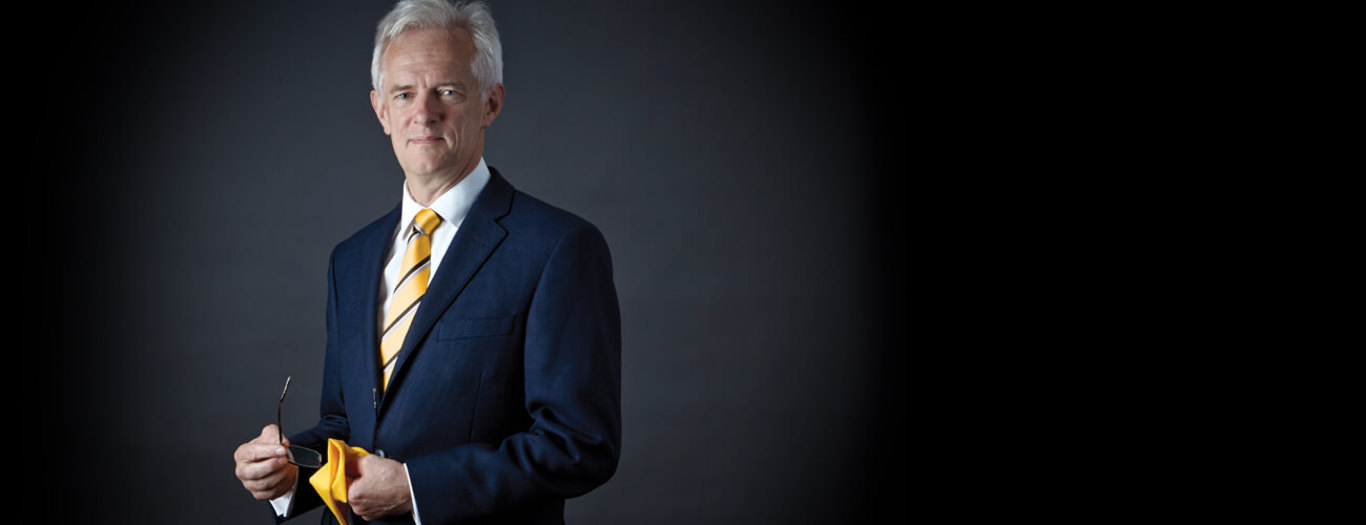'On the face of it, the decision to set up my own firm was close to insanity'
The lawyer who looks after the likes of Disney and Ryanair talks about how he set up his practice.
FROM AN EARLY age I knew I wanted to be a lawyer – it’s the intellectual activity of arguing that really appeals to me.
In the 1970s, I got a scholarship to go to the College of Europe in Bruges, which is a training ground for European law and truly gave me an appetite for international affairs. That was in the late 1970s and 1980s when the concept of a united Europe was relatively new, believe it or not.
After that course, I was an in-house lawyer for Shell for some time and then spent about five or six years as a manager in that company, not as a lawyer. My job was to rent oil refineries and manage the risk arising from that trading.
That job reaffirmed to me that I missed law. There is something about the analysis of a set of factual situations and coming up with a solution that just appeals to my mind. And purely playing with numbers to negotiate and make a profit wasn’t as appealing.
So that brought me back to law, and I worked in a London law firm when I was approached by the banana company Fyffes.
It was operating in Central America and came across unbelievable problems from the US companies that had operated there without any hindrance for hundreds of years.
It was a very volatile situation, both legally and physically, and I spent a long time trying to sort that problem out. That led me to eventually help negotiate, on behalf of Fyffes and other banana producers, the import rules for bringing bananas into Europe.
I also appeared on behalf of 77 ACP (African, Caribbean and Pacific) countries to defend the European banana regime before the newly set up World Trade Organisation (WTO).
Finally, having been involved in European law, I wrote a book in 1993 on the European procurement directive. I’m not a natural academic, so it took me every weekend of a year to write the book.
Each of those events became a trigger that led me to what I’m doing today – which is running my own law firm, Philip Lee.
 Philip Lee
Philip Lee
Starting a firm
How do you start a law firm? Probably by accident, to be honest.
On the face of the situation, the decision to set up a practice was close to insanity. I had never operated in private practice in Ireland, I had no clients except one that was based in the UK, but I still set up the firm.
What ended up being a huge stroke of luck was the book I wrote. I always knew if I could be the only one specialising in European Law, the firm would work.
I’ve tried to repeat this luck and to foresee what will become a new area of law to get an edge on competition.
Back in the very early 1990s, it was obvious that procurement was going to be a massive area even though there weren’t many lawyers working in that area at the time – not even one.
In that period, there were a lot of large infrastructure projects being funded out of Europe in Ireland and they needed to make sure they complied with European rules.
Since I was the only man in town that was able to do that at the time, it meant my firm got off to a good start.
Getting work
When I worked for Fyffes, they also wanted me to go into management, but I decided I wanted to have a go at being a lawyer on my own.
So I rented a space and had Fyffes as a client. I didn’t have a plan to get any other clients, but the book got me on the radio and that appearance brought in one client, and I presented their case in the European Court of Justice.
That put me on the map and led to my first big client, which was Dublin City Council. At the time, it had very big projects like the €400 million Dublin Bay sewage treatment plant and the Port Tunnel.
I worked with all those projects, which in the early 1990s were some of the biggest developments in the country.
From there, I have won new clients from a combination of luck and recruiting very bright people – ones brighter than me. The firm is now 120 people, so I don’t bring in all new clients.
If you recruit correctly, good people will grow the business for you. These people need to be the best in their field to attract the top clients. For instance, Disney comes into us because we are very dominant in the area of media.
We have been good at picking specialisations. We were known as a niche firm for many years, but now we are a full-service law firm.
Work now generally comes in by reference and word of mouth. But that won’t happen if you don’t have a well-recognised brand.
Quite some time ago I started working with our head of marketing about creating a brand. For us, it is all about linking our business with things that we are proud to be associated with.
You won’t find Philip Lee advertised on a bus or sponsoring every event. We associate ourselves with the best of the best when getting our brand out there, which affects people’s opinions of the practice.
It’s just my name, but I feel the brand has worked. And I knew I was having some success when my wife called into the office to deliver something one day.
She went up to reception and said, “This is for Philip Lee.” And the receptionist said, “Who in Philip Lee?” My wife said, “Just Philip Lee.” The brand is now bigger than me!
 Philip Lee office
Philip Lee office
Good and bad days
Every day good and bad things happen, but we’re lucky that we lose very few cases. But if we do lose one, that’s a bad day.
I remember losing a case that I feel was wrongly decided. It was about the system of waste collection in Ireland, which is still unregulated. Those decisions that are hard to stomach remain with you, but you have to move on.
Another tough moment for me to deal with is when someone walks in the door and says they’re moving on. We’re still of a size that you have personal connections with employees, so it hurts.
I wouldn’t say I have gotten everything right in my career and life. If I could wind back the clock, I would have married my wife earlier and had more children. And I might not have bought some of the things I did in 2007.
I still work long hours, but only five days a week – and very rarely on weekends. Every year I give a speech to everyone and I emphasise that we are a team, the meaning of which some people don’t always grasp.
Being a team means you look at your partner below you, or above you, in the business and keep an eye on whether they are working too hard. And if so, try to get that balance for them as well in terms of workload.
Quite a few people work four days a week, which we facilitate for people who we feel have the talent and need the work-life balance. In the end, they are the people who will grow the business.
We are ahead of our growth expectations, but I still think there is another 50% we would like to do. That would put us into a size of under 200 people and would make us big enough for anything in this country.
I would like to internationalise the firm more, but that’s not so much a commercial objective, more so an aspirational one. We’ll see what happens.
Philip Lee is the Managing Partner at Philip Lee. This article was written in conversation with Killian Woods as part of a series on unlikely entrepreneurs.
If you want to share your opinion, advice or story, email opinion@fora.ie.






